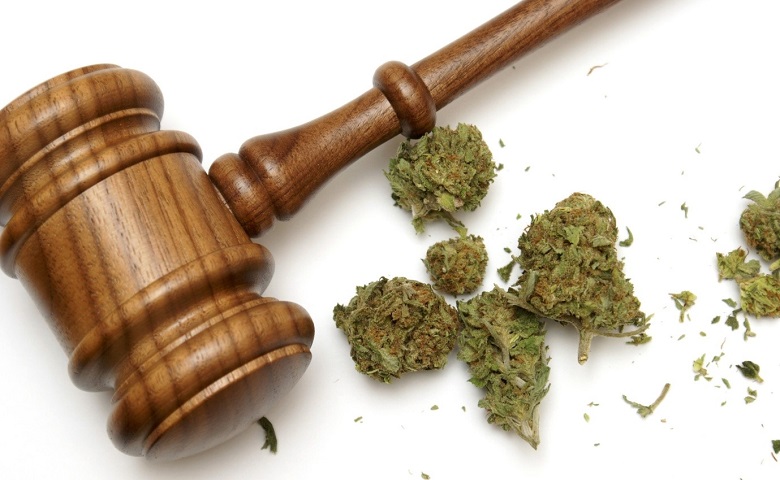Federal Marijuana Laws: When Will They Legalize It?

One of the biggest political concerns in recent years is the legalization of marijuana. So far, 11 states have legalized marijuana for recreational use.
American marijuana users and vendors have to wait for their state to make a decision on legalizing marijuana consumption. As such, both marijuana users and vendors have to study the marijuana laws by state to see which jurisdictions are most favorable.
But will we see any changes to the federal marijuana laws?
Will marijuana no longer be considered to be a Schedule I drug?
Advocating for Marijuana Legalization
It was in the 1970s that Marijuana became a Schedule I drug. This made many marijuana users realize the harsh consequences of consuming the plant.
One of the earliest advocates was attorney Keith Stroup. He went on to found the National Organization for the Reform of Marijuana Laws (NORML). This organization has worked to advocate for legalizing marijuana throughout the nation.
They’ve also worked to reduce the stigma surrounding the plant. They’ve worked to introduce Americans to the medicinal aspects of the plant.
Many similar organizations sprung up in the wake of NORML’s prominence. They’ve used many strategies to advocate for looser federal marijuana laws. These have included discussing the medicinal benefits of marijuana. These have also included the importance of maintaining personal freedoms in the “Land of the Free.”
They’ve also discussed how selling marijuana is a great business opportunity for many Americans. They’ve discussed how legalizing marijuana sales can increase tax revenue. Many advocates have also discussed the harrowing statistics of how many Americans get incarcerated due to marijuana consumption.
Marijuana in Current Popular Culture
American popular culture once contributed to the stigma of marijuana use. This was evident in films such as Reefer Madness. Many other films such as the “Cheech and Chong” series didn’t intend to stigmatize marijuana.
But these films and TV series showed marijuana consumers as lazy stoners. This didn’t do much to improve marijuana’s image for many Americans. It still seemed to represent counterculture and rebellion.
However, in recent years we’ve seen documentaries to show the intelligent marijuana user. Vice’s documentary series Weediquette has presented a different image of the plant. More news outlets and documentary filmmakers are curious about the plant. They want to share their discoveries of marijuana, without the agenda of stigmatizing it.
When millions of viewers watched the respectable entrepreneur Elon Musk smoke marijuana on The Joe Rogan Experience, this caused a stir. While some people were bothered by it, many people opened up to marijuana use after watching Mr. Musk take a drag.
As more prominent figures advocate for marijuana use, we can expect the American public to welcome legalization. What matters now is what our politicians do about it.
The Biden Administration’s Stance
President Joe Biden has a notorious history with marijuana laws. In the early 1990s, he helped push the Crime Bill which created harsher punishments for a number of crimes. Among these crimes was the possession and consumption of marijuana. This did lead to higher incarceration rates for marijuana users.
In fact, one of the last things that President Donald Trump did during his presidency was to release 7 prisoners. These 7 prisoners were serving life sentences for marijuana-related offenses!
As such, many pro-legalization Americans might be concerned about the Biden Administration’s stance on marijuana laws. The question of will Joe Biden legalize marijuana? remains unanswered.
Current Perspectives on Federal Marijuana Laws
It’s up to our legislature to decide upon federal marijuana laws. They can create laws that allow a basic level of consumption for all 50 states to follow. They can also take marijuana off the list of Schedule I drugs. So far, many current Democrats have stated loosening federal marijuana laws.
Some senators such as Chuck Schumer have expressed interest in “de-scheduling” marijuana. Senator-Elect Jon Ossoff and Senator-Elect Raphael Warnock (both from Georgia) have also pushed for policy changes.
But there are also Democrat politicians such as Senator Joe Manchin (West Virginia) who hasn’t been so favorable on policy changes.
There’s also concern about Vice President Kamala Harris who has a history of imprisoning Americans on marijuana charges. Some Republicans such as Mitch McConnell have opposed loosening federal marijuana laws. However, there are plenty who support legalization.
In both New Hampshire and Missouri, Republicans have introduced more favorable marijuana legislation. In North Dakota, there’s a GOP-led bill to legalize marijuana consumption.
In many other states, both Democrats and Republicans are working together to increase marijuana legalization.
It seems certain that lawmakers on both sides wish to reform federal marijuana laws. What remains uncertain is how the President and Vice President feel on the issue and what steps they’ll take — if any.
Past Perspectives on Federal Marijuana Laws
So how did we get here? What made marijuana such a controversial drug in the United States? Why are we fighting so hard today to increase legalization?
In Colonial America, the colonists were experts at growing the cannabis plant. During this time, there was no stigma surrounding marijuana. However, once the medicinal aspects of marijuana came to light — the stigma began!
Marijuana was once considered a form of currency, centuries before the U.S. Dollar got created. In Virginia, hemp was required to be grown on farms.
By the end of the Civil War, marijuana got used in medicine and tinctures. It was no longer currency; it was now a consumable good.
It was around this time that many Americans also noticed the euphoric effects of consuming marijuana. It was during this time that Americans began to smoke marijuana as a form of pleasure.
When Prohibition began in the 1930s, marijuana was among the substances that became banned. 29 states banned its consumption and sale altogether.
In 1937, the federal Marijuana Tax Act was passed. This made marijuana illegal throughout the nation. But perhaps the height of “Reefer Madness” catapulted in the 1950s with the counterculture movement. This rebelled against the idyllic American life that emphasized order and conformity.
Concerns about young Americans getting addicted to marijuana were rife. There were many propaganda films warning Americans about the dangers of marijuana.
These fears have remained prevalent through much of the country’s recent history. It’s only in the past two decades that the stigma on marijuana consumption has slowly died down.
The Farm Bill
In 2018, Congress passed The Farm Bill which got approved by President Trump shortly afterward.
While he wasn’t in favor of loosening federal marijuana laws, Senate Majority Leader Mitch McConnell was a huge supporter of this act. As such, the Bill got celebrated by both parties. This was the start of both parties working together to consider the future of marijuana in the country.
This Bill helped make it easier for farmers to grow hemp for commercial uses. This has made it easier for companies to spring up to sell marijuana products. Most of these products are CBD edibles and liquids. CBD (cannabidiol) products offer the benefits of marijuana while cutting down on the psychoactive effects.
The Farm Bill also helped legalize Delta 8 THC. This is a compound in marijuana that gets used to improve mood, sleeping, sex drive, and appetite.
One can expect more products with Delta 8 THC to enter the market. You can learn more about Delta 8 THC from this company.
The Farm Bill was a milestone for the future of federal marijuana laws. We can hope this sets a precedent for future marijuana freedoms throughout the nation.
Let’s now look deeper at the marijuana laws by state. Let’s analyze a few states that have made the most progress with marijuana legalization. We can hope that these states will set a precedent for the rest of the country.
Alaska
In 2015, Alaska legalized marijuana for recreational use. Adults (21+) can carry up to 1 ounce of marijuana on their person. They are also allowed to own up to six cannabis plants.
It’s illegal to smoke marijuana in public. However, the fine is a modest $100 rather than the more draconian measures of other states.
Alaska has a Right to Privacy in its state’s constitution. As such, this made private use of marijuana a right back in the 1970s. One can expect Alaska to increase marijuana freedoms in the future. It might become a haven for marijuana vendors and for medicinal marijuana.
California
While California has become notorious for limiting several freedoms, it has done well to legalize marijuana.
It’s currently the largest state to legalize marijuana. In 2016, it became legal for both recreational and medicinal use. California has also become a haven for marijuana vendors. California will likely maintain freedoms with regard to marijuana sales and consumption. However, one cannot know if the state can have any influence on the other states.
Colorado
This is the state that’s received the most praise for its stance on marijuana legalization. Amendment 64 made Colorado one of the first states to legalize marijuana. It allows any resident (21+) to possess 1 ounce of marijuana on their person. They can also grow marijuana plants as they wish.
For now, marijuana cannot get smoked in public. Only authorized vendors can sell marijuana products.
However, Governor John Hickenlooper has stated that residents can vote to determine further loosening of the laws. With the acceptance of marijuana in the state, it’s not unlikely that they’ll loosen in the near future.
Massachusetts
In 2016, Massachusetts residents voted to legalize recreational marijuana. Adults can hold up to 1 ounce of marijuana on their person. An adult can possess up to 6 marijuana plants. If a household has more than one adult, it can possess up to 12 marijuana plants.
There are some retail spaces where marijuana can get consumed. However, it cannot get consumed in public places. Marijuana also has to be concealed if you take them out in public.
One can expect these laws to loosen up even more in the future. Massachusetts might become a land of opportunity for marijuana vendors.
Michigan
This is a state that takes marijuana possession more seriously than others! In Michigan, an adult can keep up to 10 ounces on their person in their home. Outside their home, they can keep up to 2.5 ounces.
Each household can possess up to 12 marijuana plants. A retail business can sell up to 150 marijuana plants at a time. Vendors must obtain a license to sell marijuana products. With these lax laws and regulations, Michigan might become a haven for marijuana users and sellers. With the struggling economy of cities like Detroit, marijuana might be the golden ticket to its recovery.
Nevada
Recreational marijuana got legalized in Nevada in 2017. Adults (21+) can hold up to 1 ounce of marijuana on their person. They can also keep up to 1/8th ounce of marijuana concentrate. As of now, marijuana can only get consumed on private property. There’s a $600 fine for smoking marijuana in public.
As Nevada is a haven for tourism and entrepreneurship, we can expect opportunities for marijuana vendors. Nevada is one of many Western states working for marijuana acceptance. It might have an influence on other Western states to legalize marijuana. As of now, it’s unlikely that the state will influence the rest of the nation.
Washington
In Washington State, adults (21+) can possess up to 1 ounce of marijuana on their person. Selling marijuana through licensed retailers is also legal. However, as of now, taxes are rather high for marijuana sellers.
As such, Washington State wants to legalize marijuana but discourage its use. This might be a sensible model for states that want to allow personal freedom while wanting to cut down on “reefer madness.”
What’s In Store for Marijuana in the United States?
The future is still uncertain for federal marijuana laws. As of now, we have to watch as different states make decisions regarding marijuana’s legality. The good news is that many lawmakers from both parties are supportive of increased legalization. Some states want complete legalization, while others will slightly loosen restrictions.
But decriminalizing marijuana at the federal level is crucial. It ensures that there’ll be guaranteed legality in all 50 states. It might even lead to reducing sentences and ending mass incarceration. We’ll have to wait and see what happens! You can find more content on marijuana on our website.

















